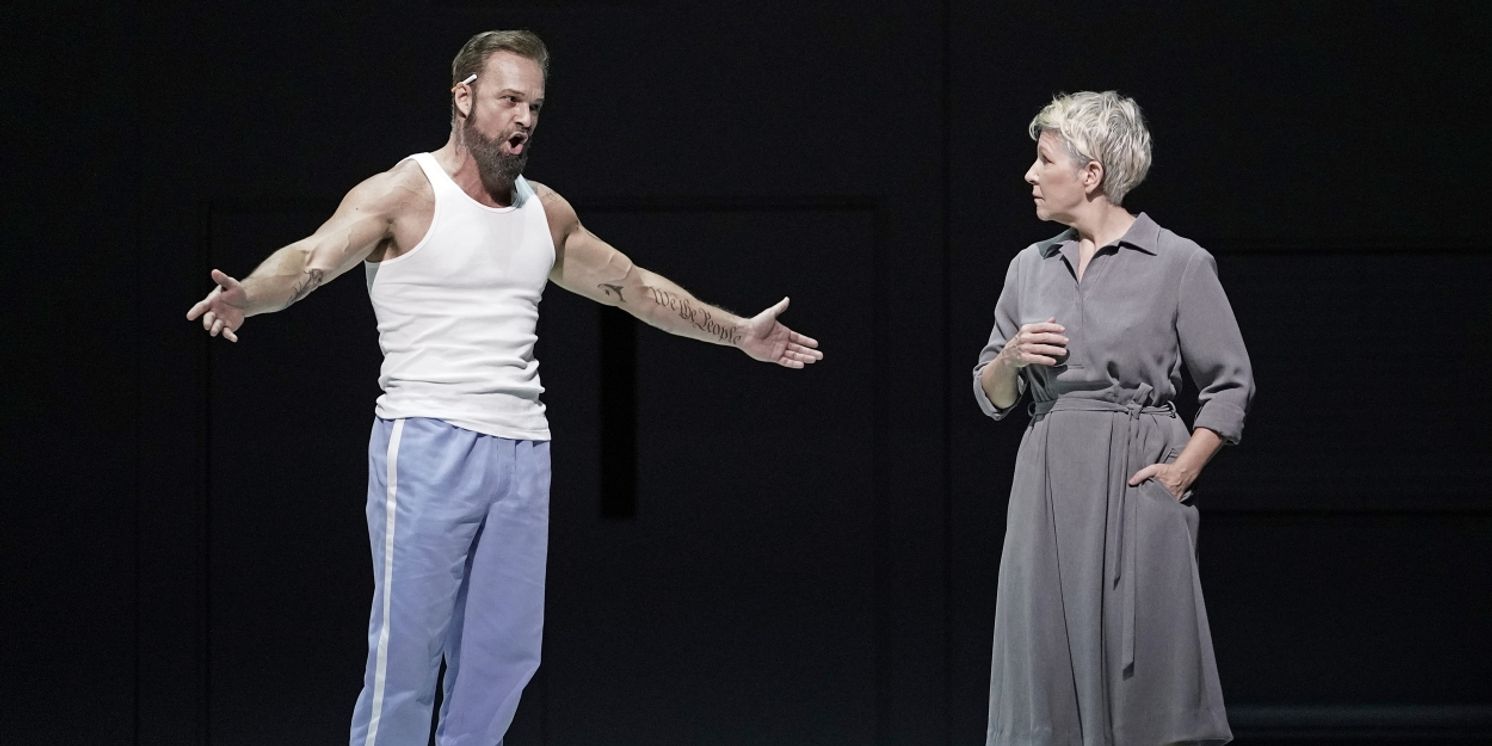Review Roundup: DEAD MAN WALKING at the Metropolitan Opera
Performances continue through October 21st at the Met Opera.

The reviews are in for the premiere production of the new Met season, Dead Man Walking. American composer Jake Heggie’s masterpiece, the most widely performed new opera of the last 20 years, has its highly anticipated Met premiere, in a haunting new production by Ivo van Hove. Based on Sister Helen Prejean’s memoir about her fight for the soul of a condemned murderer, Dead Man Walking matches the high drama of its subject with Heggie’s beautiful and poignant music and a brilliant libretto by Terrence McNally.
The production features Joyce DiDonato, Ryan McKinny, Susan GRaham, and Latonia Moore. Rannick Nézet-Séguin and Steven Osgood share conducting duties.
Met Music Director Yannick Nézet-Séguin takes the podium for this landmark premiere, with mezzo-soprano Joyce DiDonato starring as Sister Helen. The outstanding cast also features bass-baritone Ryan McKinny as the death-row inmate Joseph De Rocher, soprano Latonia Moore as Sister Rose, and legendary mezzo-soprano Susan Graham—who sang Helen Prejean in the opera’s 2000 premiere—as De Rocher’s mother.
The most widely performed new opera of the last two decades, Dead Man Walking is adapted from the groundbreaking memoir by Sister Helen Prejean. It concerns her ministry to condemned murderers on death row, and in bringing this powerful story to the operatic stage, composer Jake Heggie created a score that recalls Sister Helen’s prose and her advocacy style: direct, unaffected, and unflinchingly honest—but not without a deep understanding of the heart and humanity inside each one of us.
While based on real-life events from the late 1970s and early 1980s, Heggie’s opera is more generally set in contemporary times, as questions about the value and morality of the death penalty remain relevant. Nonetheless, the locations evoke actual places from Prejean’s life: a mission in a very poor neighborhood of New Orleans, the long road out to Louisiana State Penitentiary, and predominantly the prison itself.
Let's see what the critics had to say!
Zachary Woolfe, NY Times: Van Hove’s characteristically spare style is showcased here even more than in his Met “Don Giovanni” last season. He doesn’t bother with cellblock bars or handcuffs, the clichés of prison drama. Jan Versweyveld’s harshly lit set is an empty box with a cube hovering above, and all the blank surfaces are used as screens for stage-filling projections of both prerecorded and live video, another van Hove trademark. Paired with An D’Huys’s muted-color costumes, the effect is of a stylized, anonymously bureaucratic present day.
Michael Andor Brodeur, Washington Post: It could be this engineered sense of captivity that allowed mezzo-soprano Joyce DiDonato’s turn as Sister Helen to achieve such flight. This is, to be sure, DiDonato’s show: She barely ever leaves the stage, the action never escapes her purview, and she’s as bound to her sense of divine duty to De Rocher as De Rocher is to the consequences of his crime.
Richard Sasanow, BroadwayWorld: The cast was wonderful, to a person. Soprano Latonia Moore—who was remarkable in Terence Blanchard’s CHAMPION, as Emile Griffith’s mother—would have walked away with the opera if the stars were not so unbeatable. As Sister Rose, she was a fine foil for DiDonato, a little more worldly. For example, in Act II, when the troubled Sister Helen has problems sleeping and asks Rose to do a rosary with her, Rose says, “Do you know what time it is?” and excuses herself for her bed.
David Salazar, Opera Wire: At the center of how this music stays with you is that music is direct and emotional about its methods, a connected whole with musical themes and ideas joining and developing throughout. It is intended for the audience sitting there before them, not a specific one of musicologists or audiences predisposed toward a specific kind of classical music. It’s bare and immediate, and as a result, it is memorable.
David Wright, NY Classical Review: Heggie’s score—whose default was a burble of horns and woodwinds under the dialogue, occasionally rising to a pounding beat or a percussive roar—supported the drama without calling attention to itself. An invented “old hymn tune,” Sister Helen’s theme throughout the opera, was the nearest thing to what the real-life Sister Helen requested from Heggie—“melodies that people can hum.”
Photo: Ryan McKinny as Joseph De Rocher and Joyce DiDonato as Sister Helen Prejean in Jake Heggie's "Dead Man Walking." Photo: Karen Almond / Met Opera
Reader Reviews
Videos

